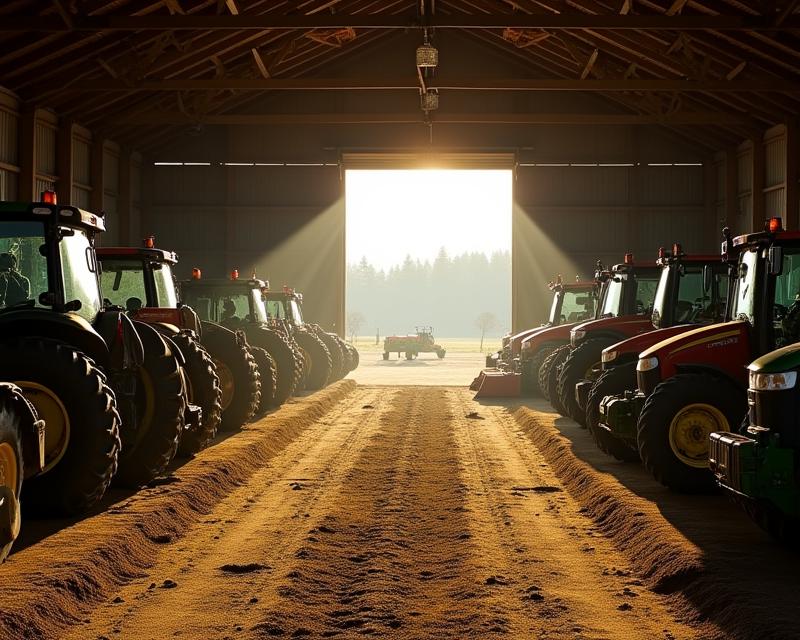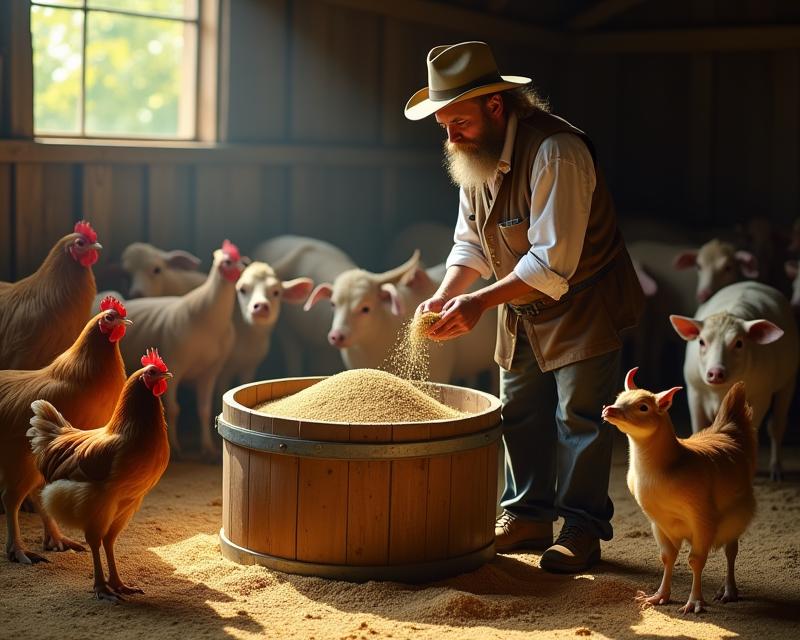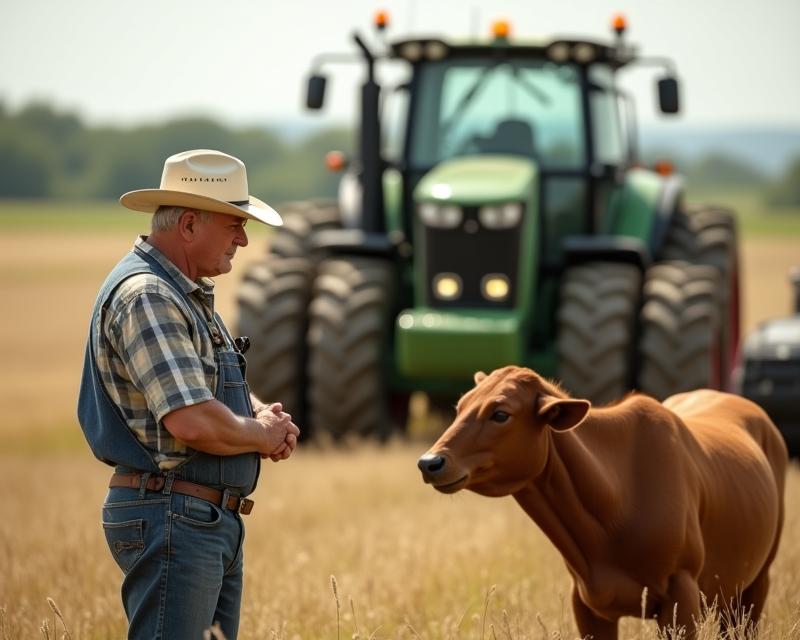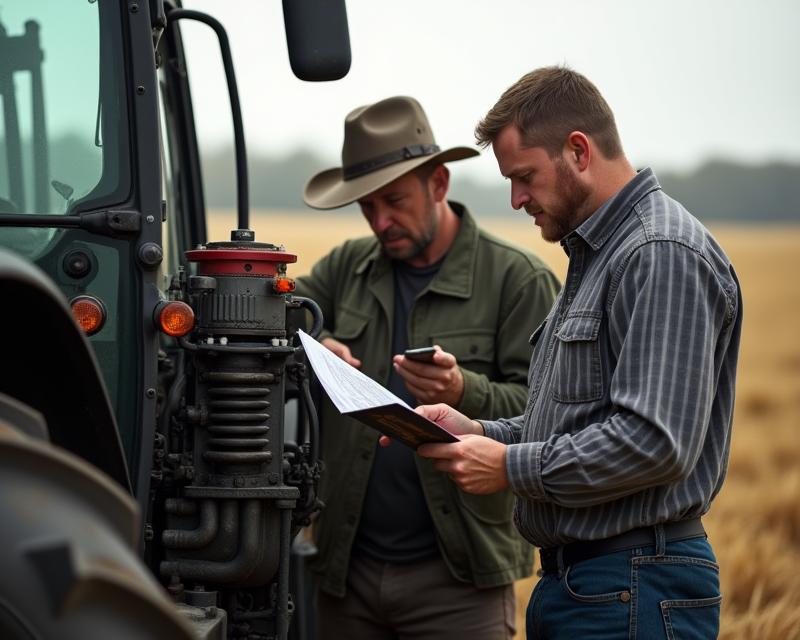Off-Season Equipment Storage: Keep it Ready!
Publish in Farm Business el 28/06/2025 22:27
Off-Season Equipment Storage: Keep it Ready!
The end of the growing season doesn't mean the end of work on the farm. Properly storing your farming equipment during the off-season is crucial for extending its lifespan and ensuring it's ready to go when planting season arrives. Neglecting equipment storage can lead to costly repairs and replacements down the road. Here’s a comprehensive guide to help you prepare your machinery for a well-deserved rest.

Preparation is Key
Before you even think about a storage location, thorough cleaning is essential. Remove all dirt, mud, and debris from your equipment. This includes washing tractors, combines, planters, and all implements. Pay special attention to removing salt, which can cause rust. Inspect all parts for wear and tear and address any minor issues now to prevent them from becoming major problems later. Lubricate moving parts according to the manufacturer's recommendations. A well-cleaned and lubricated machine is much easier to store and will be in better condition when you need it.
Choosing the Right Storage Location
The ideal storage location depends on the type and amount of equipment you have. A dry, covered area is paramount. Options include a barn, shed, or even a garage. If you don't have a dedicated structure, consider using tarps or covers to protect equipment from the elements. Elevating equipment off the ground can help prevent moisture damage and rodent infestations. Ensure the storage area is secure to prevent theft. Consider climate control if you live in an area with extreme temperature fluctuations or high humidity.
Specific Equipment Storage Tips
Tractors: Fill the fuel tank with fuel stabilizer to prevent fuel degradation. Cover the tractor with a weatherproof tarp. Consider placing tires on stands to prevent flat spots. Combines: Follow the manufacturer's instructions for storing combine harvesters, which often involve specific adjustments and lubrication procedures. Implements: Store implements in a way that prevents them from being crushed or damaged. Hang smaller implements on hooks or store them on racks. Wrap blades and sharp edges to protect people and animals. Small Equipment: Store smaller equipment like tillers and cultivators in a dry, protected area. Drain fluids and remove spark plugs to prevent corrosion.
Regular Checks During Storage
Even during the off-season, it's a good idea to periodically check your stored equipment. Inspect for signs of moisture, rust, or rodent damage. Reapply lubricant as needed. This simple maintenance can prevent minor problems from escalating into major repairs. By taking the time to properly store your equipment, you'll save money, extend its lifespan, and be ready to tackle the next growing season with confidence.





